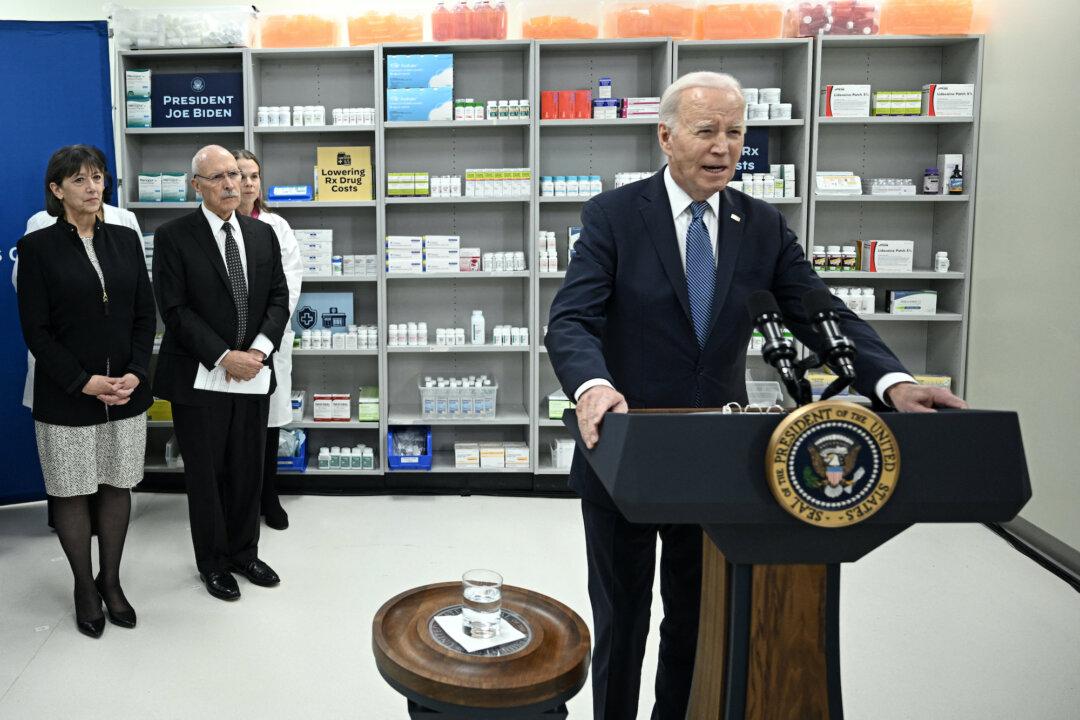The White House announced on Thursday that 48 drugs will be subject to penalties after drugmakers raised prices faster than the rate of inflation.
Under President Joe Biden’s Inflation Reduction Act (IRA), drug companies that price gouge may be required to pay rebates to Medicare, particularly focusing on those affecting over 750,000 seniors who rely on Medicare Part B drugs.





